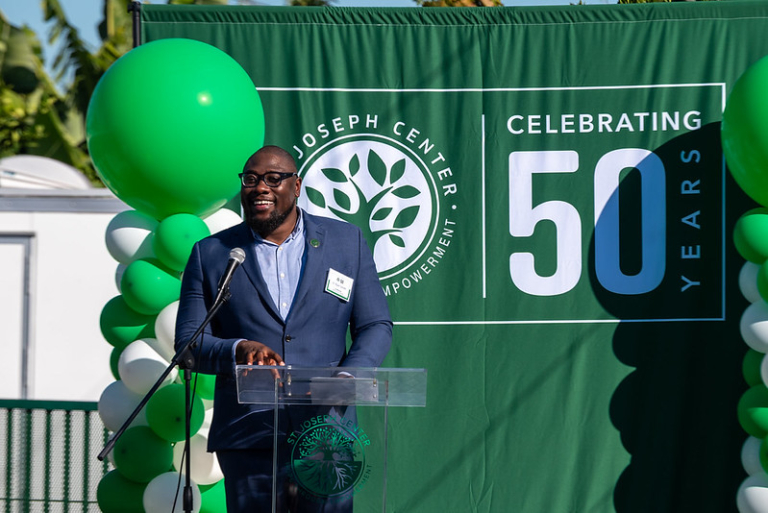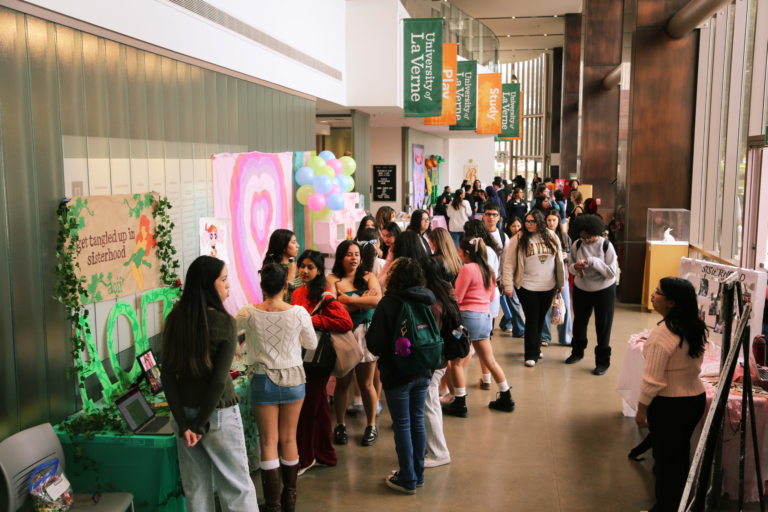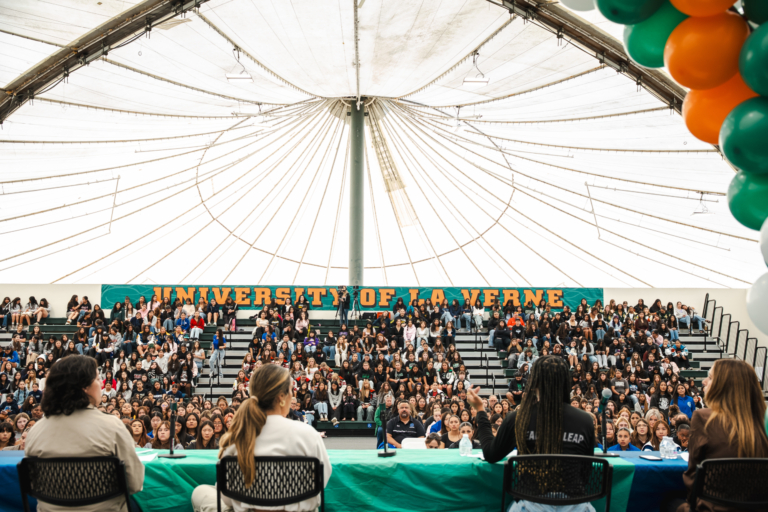Professor of Biology Inspires Innovation at PKAL Conference
She is preparing the next generation of scientists, critical thinkers and educators.
Professor of Biology Dr. Christine Broussard is passionate about giving students the hands-on experience they need to succeed in science. The University of La Verne professor enjoys sharing her passion and presented at the fourth annual meeting of the Southern California Project Kaleidoscope Regional Network (PKAL) in February 2014.
She presented science education research during the Integrating Scientific Inquiry and Reasoning Skills Across the Curriculum session at the conference. Her presentation highlighted work the La Verne biology department has done to integrate inquiry and research immersion experiences in courses from the first year to the senior year since receiving a grant from the National Science Foundation (NSF) in 2007.
“Few schools in the country have been able to do this, which sets us apart in a very positive way,” Broussard said.
After the presentation, Broussard led a discussion in which other schools were encouraged to start thinking about how to imbed inquiry in a meaningful way into their curricula. As part of the NSF-funded project, she developed Design Your Own Experiment (DYOE) lab modules that put students at the forefront of the learning process.
Students in DYOE labs work in teams to develop centrally themed experiments, carry them out and analyze the resulting data. They then present their findings to the larger group.
Creating an electronic lab manual for students and instructors to utilize is the second phase of the NSF project. This will allow other institutions to adopt the DYOE process and develop assessments for evaluation of the approach in different institutional contexts.
“I merely opened the door,” Broussard said. “The success I had with upper division courses such as BIOL 310 Cell Biology and BIOL 313 Developmental Biology, empowered other faculty, like Kat Weaver, to try out their own ideas in lower division courses such as BIOL 205 Animal Biology and BIOL 379/380 Research Methods and Biostatistics.”
Inquiry has been integrated into the non-majors BIOL 101 Life Science courses at La Verne. Steps have also been taken to seek out hiring professors who embrace integrating inquiry.
After several years of hard work, the freshman biology experience for majors was recreated in 2011.
“Though it is still early in the process, it seems that the new freshman series is meeting with great success and enthusiasm,” Broussard said. “There is considerable evidence in the science education literature that integrating inquiry and research experiences into the curriculum early in the undergraduate program promotes student retention and success, particularly of under-prepared and under-represented groups in Science, Technology, Engineering, and Mathematics (STEM).”
“This high impact practice has been a hallmark of the Biology program for more than 40 years,” Broussard said. “Integrating it even earlier into the curriculum means that we can improve freshman to sophomore and sophomore to junior retention, and increase student performance at all levels, and we have seen those changes.”
When discussing La Verne’s program with faculty and administrators from other institutions, at PKAL, Broussard found that there are often barriers including financial and other resources that prohibit them from integrating a program like the one in place at La Verne.
“It is hard work and costly to offer high impact practices and to do them effectively,” Broussard said. “Many faculty, administrators, and institutions have competing priorities; Learning about and implementing high impact practices is often not high on the list.”
That is not the case at La Verne. In the natural sciences, faculty members have been engaged in high-impact educational practices for many years.
Prioritizing academic excellence has been a main point of focus for the College of Arts & Sciences as a whole. Because of that commitment, faculty are able to focus on ensuring that their students receive the best education possible.
“If the nation is to prepare the number and quality of STEM workers President Obama has called for, more schools need to adopt the holistic approach we have created,” Broussard said. “Though it is our heritage as an institution to be humble, it is also in our heritage to serve the community. In order to serve, we cannot continue to be a ‘best kept secret.’ The University of La Verne and the faculty-developed approach of integrating scientific inquiry and reasoning skills across the curriculum needs to be shared on a larger scale with other institutions.”


